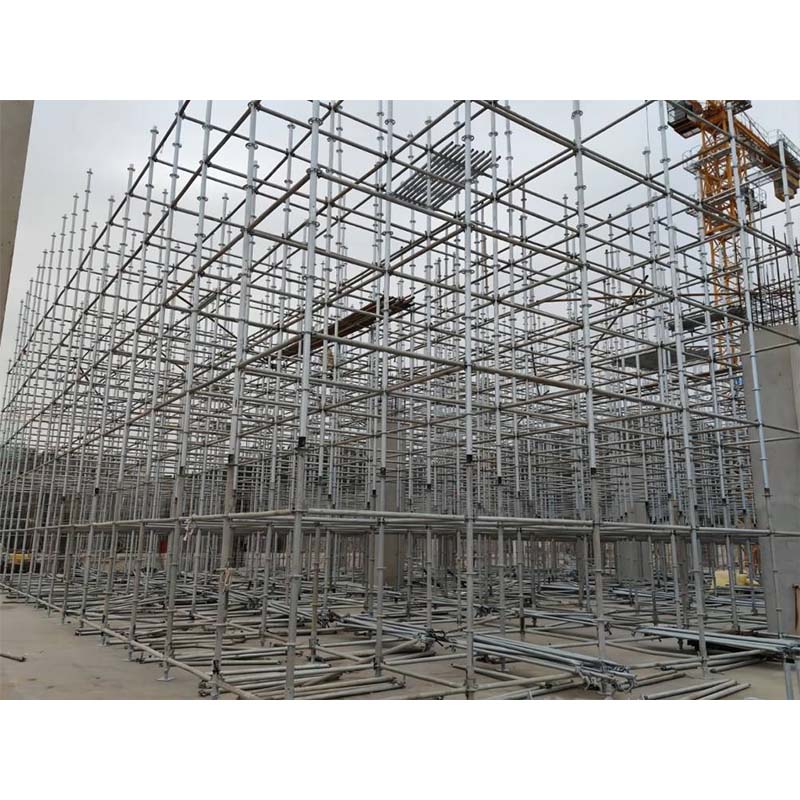Dec . 06, 2024 04:04 Back to list
tunnel formwork factory
Innovative Tunnel Formwork Factory Revolutionizing Construction Efficiency
In the realm of modern construction, efficiency and speed are paramount. One of the most promising advancements in this field is the development of tunnel formwork systems. A tunnel formwork factory specializes in the production of these specialized systems, providing critical solutions for builders and developers around the world. This article explores the significance of tunnel formwork factories and their impact on the construction industry.
What is Tunnel Formwork?
Tunnel formwork is a construction technique used primarily for the creation of walls and slabs in a single pour, generally in concrete buildings. This system involves the use of large, reusable molds that are assembled to form the structure’s walls and ceilings in one continuous operation. The design of tunnel formwork allows contractors to create elongated spaces efficiently, which is particularly beneficial for residential and commercial projects with multiple stories.
The Advantages of Tunnel Formwork
1. Speed of Construction One of the standout features of tunnel formwork is its ability to significantly reduce construction time. Because walls and slabs are formed simultaneously, projects can be completed in a fraction of the time required by traditional methods. Some factories can produce units ready for use within just three days of pouring concrete.
2. Cost-Effectiveness While the initial investment in tunnel formwork may be higher than traditional options, the long-term savings are substantial. Reduced labor costs, shortened project timelines, and minimal waste contribute to overall cost efficiency. Additionally, the reusability of the molds diminishes the need for repeated investment in new materials for future projects.
tunnel formwork factory

3. Quality Control Factories dedicated to tunnel formwork are equipped with state-of-the-art technology and stringent quality controls. This ensures that the formwork produced is consistent and adheres to the highest industry standards. Such meticulous production processes minimize errors on-site, resulting in superior build quality.
4. Versatility Tunnel formwork systems are adaptable to a variety of building designs and environments. Whether constructing residential complexes, commercial buildings, or infrastructure projects like tunnels and parking garages, these systems can be tailored to meet specific project requirements.
5. Sustainability As the construction industry shifts towards greener practices, tunnel formwork factories play an integral role. The minimized material waste and energy-efficient production processes contribute to a smaller environmental footprint. Furthermore, the durability and longevity of the poured concrete structures support sustainable building practices.
The Role of Technology in Tunnel Formwork Factories
Modern tunnel formwork factories are increasingly embracing technology to enhance their operations. Automation in the production process not only increases efficiency but also allows for precise control over the manufacturing dimensions and materials. Additionally, integrating Building Information Modeling (BIM) into the design phase improves collaborative planning and execution between architects, engineers, and contractors.
Conclusion
Tunnel formwork factories represent a significant evolution in construction methods. By streamlining the building process, reducing costs, and assuring high-quality outputs, these factories are positioning themselves at the forefront of construction innovation. As the demand for faster and more efficient building solutions continues to grow, the role of tunnel formwork will undoubtedly expand, making it a crucial component in the future landscape of construction. Whether for high-rise apartments, commercial developments, or public infrastructure, tunnel formwork will lead the way in revolutionizing how we approach building in urban environments.
-
Adjustable Heavy Duty Props for Slab Formwork - Max Load & Safety
NewsAug.30,2025
-
Premium Formwork Wing Nuts & Tie Rods | Factory Supplier
NewsAug.29,2025
-
Expert Ringlock Scaffolding: Durable, Safe, Efficient Solutions
NewsAug.28,2025
-
Ringlock Scaffolding: Strong, Safe & Efficient Solutions
NewsAug.27,2025
-
OEM Column Formwork: Circular, Curved & Inclined Solutions
NewsAug.26,2025
-
Premium Scaffolding Jacks: Stable, Adjustable & Durable
NewsAug.25,2025